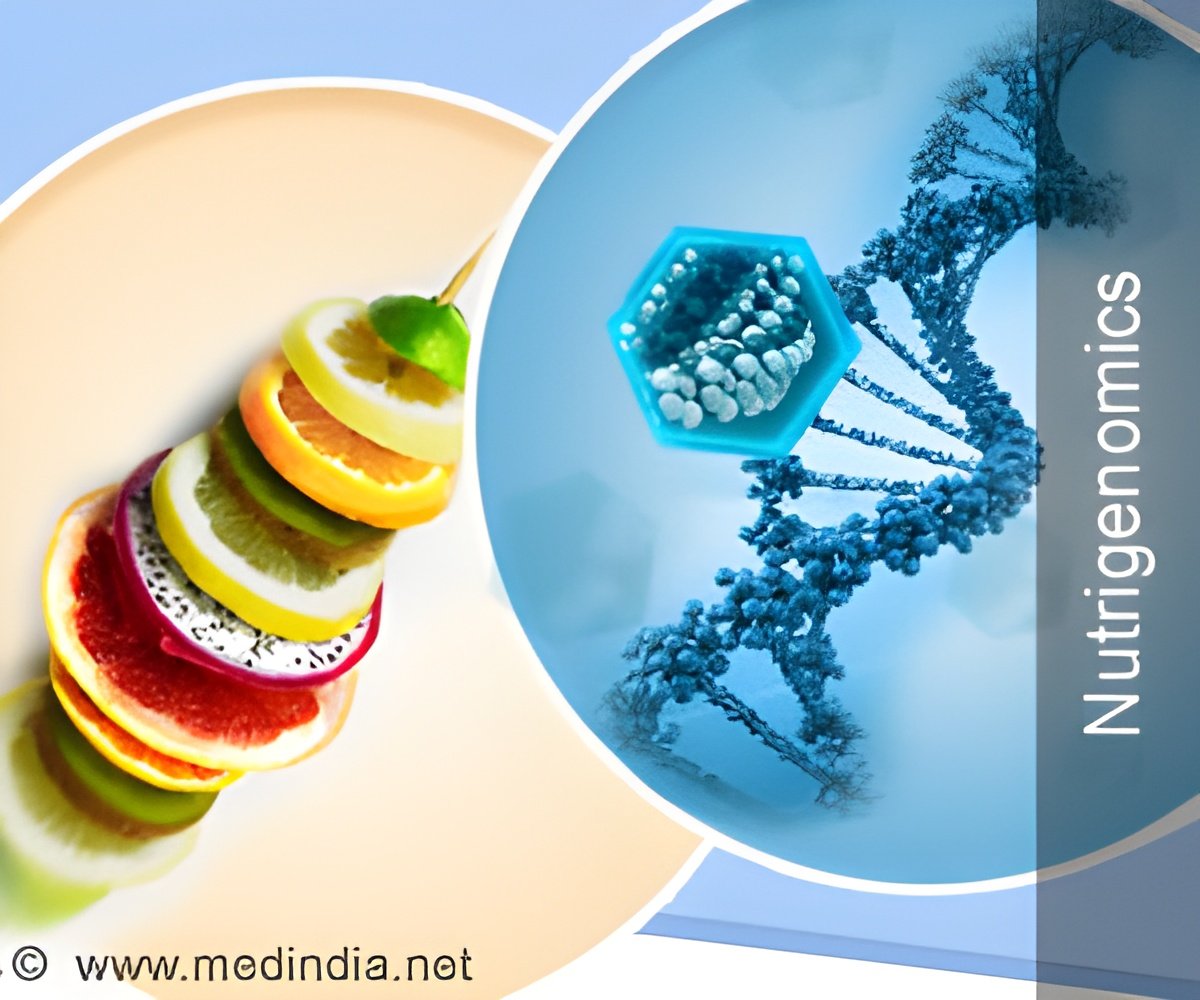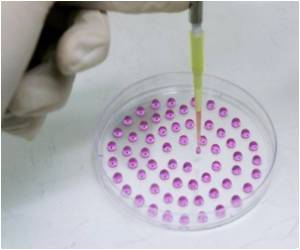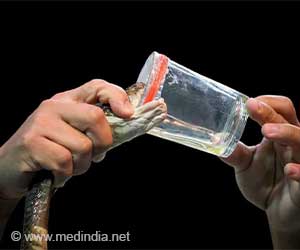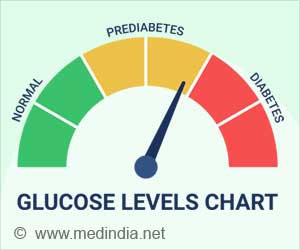The science of nutrigenomics studies the relationship of genes with dietary nutrients and their effect on the individual’s health.

Science of Nutrigenomics
The term, nutrigenomics, was introduced in the early twenty-first century with the advent of data from the Human Genome Project. Research in nutrition science was prevalent even before the term ‘nutrigenomics’ was coined. Ghai and others, filed a patent in 1996, on the discovery of certain flavonoids (plant pigments) in citrus peel. These flavonoids enhance expression of a gene, which is involved in fighting cancer in the human body. Another common example of the gene-diet relationship is lactose intolerance. Lactose intolerance is due to a change in the lactase enzyme gene that results in certain individuals being unable to digest milk proteins. This gives rise to an inability to consume milk products, resulting in stomach discomfort.
These examples give a fair idea of the effects of genes on different nutrient-related diseases. Nutrigenomics basically studies the response of genes to dietary nutrients. A parallel branch, nutrigenetics, studies the effect of different gene changes (deletions, gene modifications) on nutrient metabolism. The example of lactose intolerance involves change in a single gene. However, a chronic disease such as cancer involves changes in many genes. A combination of changes, in certain genes, can be responsible for a particular cancer. Information, on such gene or protein changes, can give us an idea of the susceptibility of an individual to a certain condition. A registered dietitian, with the help of gene information, can understand the effects of nutrients on such changes. Hence, nutrigenetics and nutrigenomics can aid in providing personalized nutrition advice to an individual.
Effect of Food on Disease Risk
Based on our innate dependence on food, modifying our diet to avoid the risk of developing health conditions is significant. It also highlights the disease variation in the human population based on our different diet choices. Fundamentally, the human genome shows variations based on ethnic and racial groups. Food habits also differ across these diverse human groups. The risk of disease development is controlled by such variation, in addition to other factors such as environment and lifestyle. Another basic aspect, controlling the pattern of gene expression, is malnutrition. This has been observed in diabetes, where undernourished pregnant women in rural India, give birth to underweight children. Later in life, these children tend to develop diabetes when exposed to nutrient-rich diets. The undernourished fetus, in an attempt to obtain as much nourishment from the depleted maternal food supply, suppresses insulin that breaks down sugars. In later years, the individual is unable to digest sugar and fat-rich food.
Companies around the world are utilizing information from potential diet-related genes to identify risks of developing potential diseases. Nutrigenomic tests utilize saliva, stools, or hair of individuals to identify irregularities in metabolism-related genes. The wide range of tests provides information on the individual’s genetic profile. Registered dietitians are equipped to analyze this information. Based on the analyses, specific dietary regimens can be initiated to tackle the conditions involved.
There are downsides to this approach. Such analyses, while empowering the consumer with personalized information, may be harmful if not discussed with their medical specialist. Genetic information, while comprehensive for the current period, may not provide complete information based on technical limitations. It could result in the patient undergoing unnecessary treatments, which may trigger other complications within the individual. This is a cause for concern even in other countries like Canada, Australia and the USA. Hence, there should be a collaborative network of medical specialists and registered dietitians to guide the patient in their treatment decisions. Another aspect to be noted is that personalized genetic and health information needs to be utilized only for treatment purposes rather than for commercial purposes. This will prevent insurance companies from restricting coverage to individuals at risk of chronic diseases. Finally, genetic information can also limit the freedom of choice for food since an individual will be informed of a personalized dietary plan.
The Future of Nutrigenomics
The science of nutrigenomics will take a while to become an integral part of our medical regimen. With understanding and acceptance of the integration of nutrition in healthcare, there will be a better chance of arresting the progress of different diseases and a higher survival rate. As Socrates was once quoted, “One should eat to live, not live to eat.”
Source-Medindia
 MEDINDIA
MEDINDIA




 Email
Email




